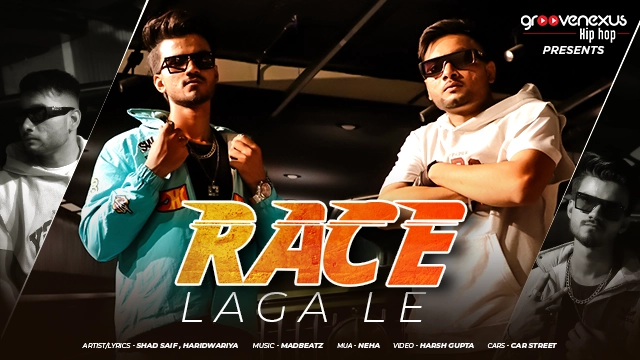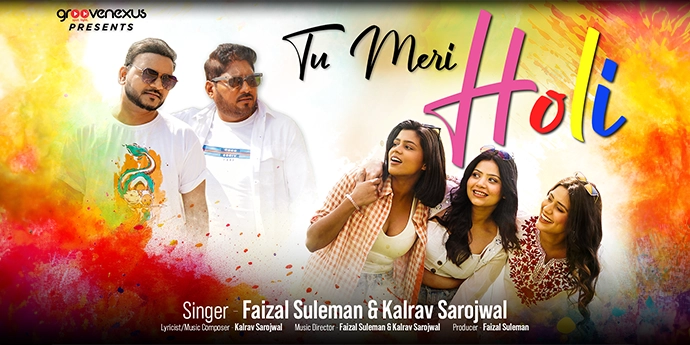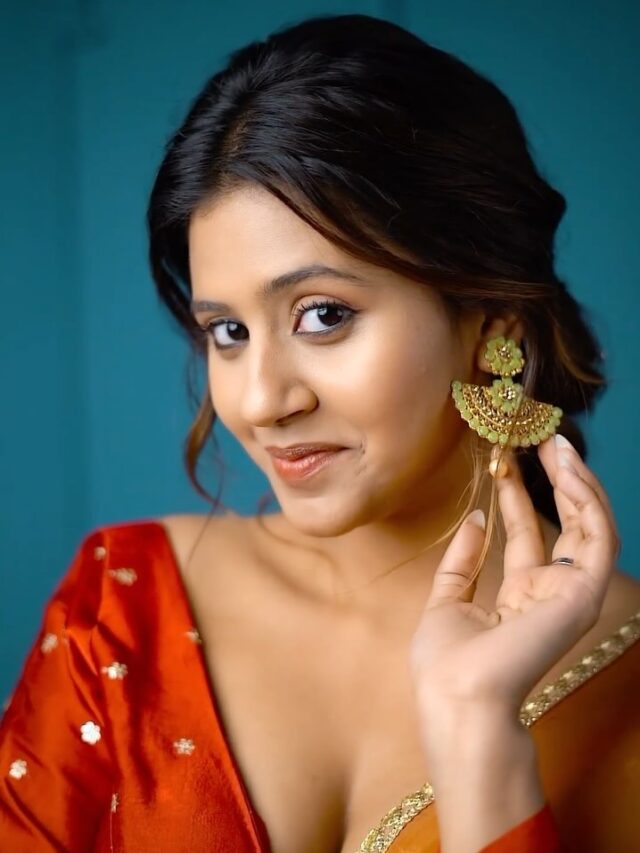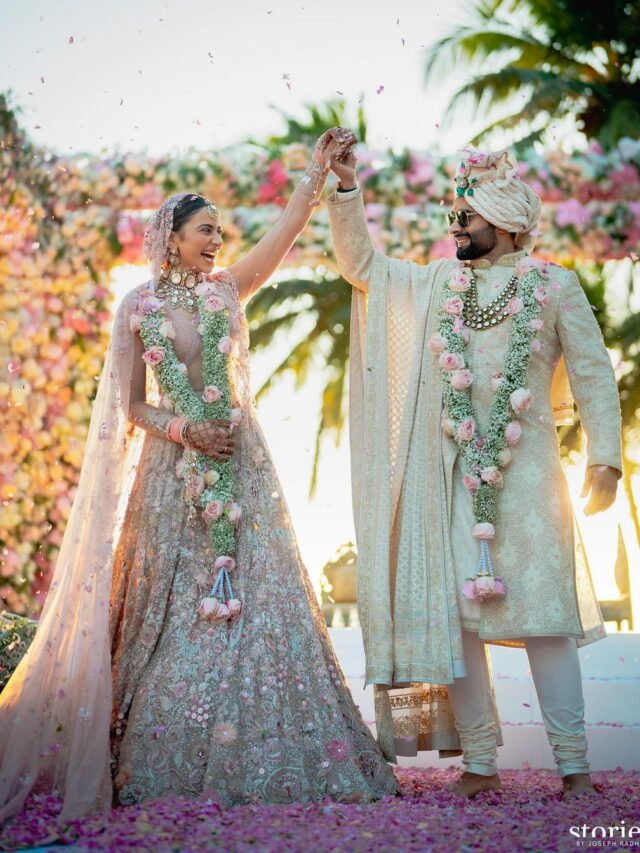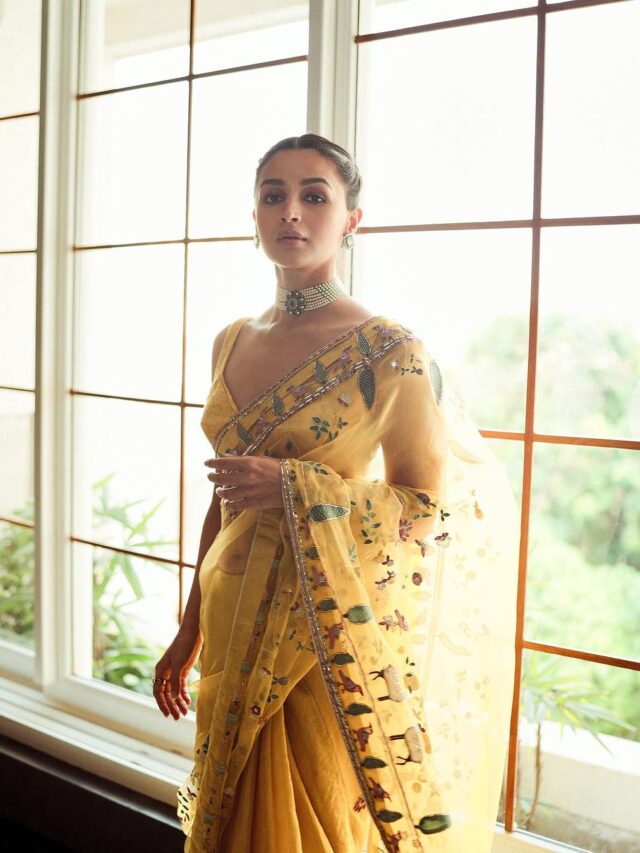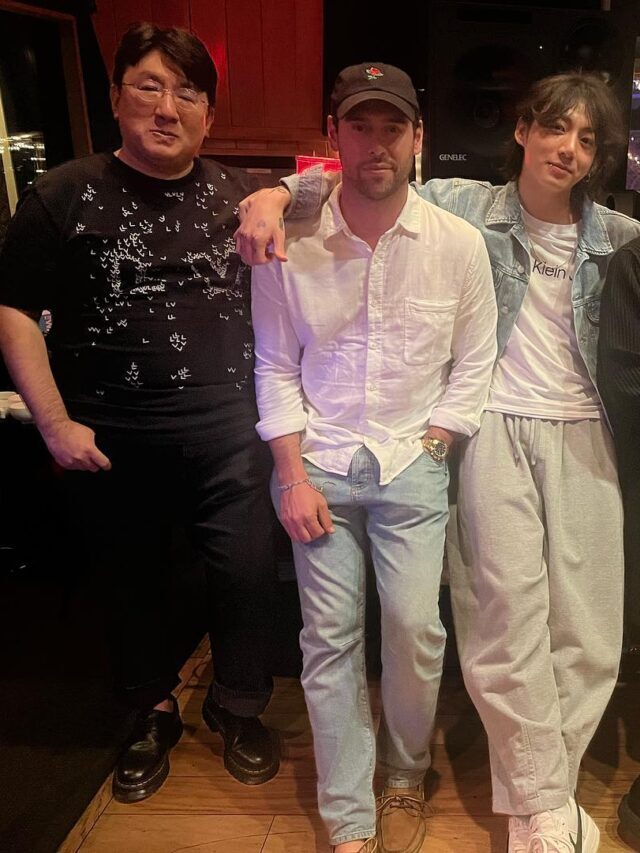Celebrating the bond with Raksha Bandhan songs:
As the melodious Raksha Bandhan song “Meri Behna…Hooo Meri Behna Deewani Hai…” and “Phoolon Ka Taaron Ka Sabka Kehna Hai…” fill the air, a heartwarming scene unfolds. A beautifully decorated veneration platter takes center stage, adorned with Roli-Chandan and Akshat for the auspicious tika, Kapoor for the sacred aarti, and an array of delightful treats. Among them, Rosogulla, dairy milk, and Kaju Katli stand gracefully, arranged with as much love as skill.
The atmosphere is charged with the affectionate energy of a sister’s heartfelt preparations for her beloved brother. Dressed in resplendent ethnic attire, the girl radiates joy as her eyes shimmer with excitement, and her lips stretch into an earnest smile. This moment captures the essence of Raksha Bandhan, where a sister’s care, concern, and prayers come together to weave a bond stronger than any thread.
Just as the threads of love and affection are intricately woven into the fabric of this celebration, so too are the threads that sisters lovingly tie around their brothers’ wrists, seeking protection and well-being. This timeless tradition finds its roots in the Vedas, where stories like that of Lord Krishna and Draupadi from the Mahabharata resonate.
Like Draupadi’s unbreakable faith in Lord Krishna’s protection, sisters tie the rakhi with the same unwavering trust in their brothers’ safeguarding. As we curate a captivating Raksha bandhan song playlist featuring Bollywood’s melodious tunes, let’s dive into the heartwarming tales that underscore this festival’s essence, evoking emotions of love and togetherness through song.
As we approach this year’s Raksha Bandhan our spirits are uplifted by the prospect of celebration. In anticipation of the festivities, we’ve meticulously curated a collection of Bollywood songs that encapsulate the essence of Raksha Bandhan, for no jubilation is truly complete without the resonating melodies of Bollywood gracing the occasion.
Dhaagon Se Bandhaa (2022)
Dive into the enchanting world of melodies with “Dhaagon Se Baandhaa,” a soulful musical masterpiece composed by the acclaimed Himesh Reshammiya. The poignant lyrics penned by Irshad Kamil intertwine seamlessly with the heartwarming vocals of Arijit Singh and the ethereal tones of Shreya Ghoshal.
The song takes you on a journey of timeless bonds and unbreakable connections. Choreographed by the talented Vijay Ganguly, each note resonates with the emotions of attachment and devotion. The music arrangement is a symphony of talent, featuring music programmers Suhas Parab, Subhash Parab, Priyesh Vakil, Barzin Contractor, and Pratik Panchal. Deepak Sinha’s guitar, Dilshad Khan’s sarangi, and Ronu Majumdar’s flute create a harmonious blend of emotions.
Crafted with precision, the sound engineering by Salman Shaikh and Anudutt Shamain at HR Musik Studio adds depth and texture to the music. The final touch of mixing and mastering, executed by Salman Shaikh, encapsulates the song’s essence with finesse.
Presented by Zee Studios in collaboration with Alka Hiranandani and Aanand L Rai, “Dhaagon Se Baandhaa” is a pivotal part of the heartfelt journey depicted in the film. A Colour Yellow Production in association with Cape Of Good Films, the movie is helmed by the visionary director Aanand L Rai. Produced by Aanand L Rai and Himanshu Sharma, the film’s touching narrative is a creation of Himanshu Sharma and Kanika Dhillon.
The lyrics, a poetic reflection of profound relationships, invite listeners to explore the beauty of connections that transcend time. The chorus weaves the delicate threads of emotion and memories that remain unbreakable, just like the bonds celebrated during Rakshabandhan.
As Arijit Singh and Shreya Ghoshal breathe life into the verses, the heart-rending emotions of longing and togetherness resonate deeply. “Dhaagon Se Baandhaa” encapsulates the essence of being incomplete without the presence of a loved one, a sentiment that everyone can relate to.
This song is an enchanting blend of music, lyrics, and emotions – a masterpiece that will linger in your heart long after the final note fades.
Bhaiya Mere Rakhi Ke Bandhan Ko Nibhaana (1959)
“Bhaiya Mere Rakhi Ke Bandhan Ko Nibhaana” is a timeless and soul-stirring song that epitomizes the endearing bond between a brother and a sister. Sung with heartfelt emotion by the legendary Lata Mangeshkar, the song is a memorable part of the classic Bollywood film “Chhoti Behan” released in 1959. The film stars Nanda, Balraj Sahni, Rehman, and Shyama, capturing the essence of familial love and devotion.
The lyrics paint a vivid picture of the sibling relationship, encapsulating the joyous moments of tying the Rakhi and placing a tilak on the brother’s forehead. The song beautifully captures the sentiments of protection, trust, and affection that define this sacred bond. Through verses that liken the brother-sister relationship to the pure flow of a river and the fragility of glass, the song delves into the delicate yet unbreakable nature of this connection.
As the melodious composition weaves a heartfelt narrative, it emphasizes the commitment to upholding the promises made during Raksha Bandhan. The song’s evocative verses reflect the optimism that this bond will withstand the test of time and distance. With its soul-stirring melody and emotional depth, “Bhaiya Mere Rakhi Ke Bandhan Ko Nibhana” continues to resonate as a touching ode to the enduring sibling bond that remains unshaken through the seasons of life.
Phoolon Ka Taaron Ka (1971)
“Phoolon Ka Taaron Ka” from the iconic 1971 movie “Hare Rama Hare Krishna” is a Rakhi song that stands as a heartwarming testament to the cherished sibling bond. Following the footsteps of “Bhaiya Mere,” this song has etched its place in the hearts of millions, making it one of the most commercially successful Rakhi tracks ever.
Lata Mangeshkar’s enchanting vocals breathe life into the lyrics, which carry an emotional resonance that echoes the sentiments of Raksha Bandhan. The song speaks of the unbreakable bond between siblings, epitomizing the theme of unity and togetherness. The lyrics convey that the world must know and acknowledge that the connection between siblings is as vital as the petals of a flower, a strand of stars in the sky.
As the verses unfold, the song captures the journey of separation, the yearning for reconnection, and the remembrance of shared dreams. The lyrics paint a picture of longing and nostalgia as the sibling relationship endures physical distance. The profound lines highlight the fact that even in the absence of sleep and tranquility, the sibling connection remains a source of solace and strength.
The song takes us on a heartfelt journey, expressing the inseparable bond of love and the mutual comfort derived from each other’s company. It reassures that in times of sorrow and joy, siblings remain steadfast allies. Through poetic comparisons, the lyrics celebrate the sister’s innocence, likening her to a precious doll and a beloved treasure.
“Phoolon Ka Taaron Ka” resonates as a heartfelt reminder that amidst life’s trials and tribulations, the bond between siblings remains unwavering. This song has become an anthem of sibling love, echoing through the years and generations, and encapsulating the essence of Raksha Bandhan in its melody and verses.
Dekh Sakta Hu Me Kuch Bhi (1974)
“Dekh Sakta Hoon Main Kuch Bhi” is a poignant song that delves deep into the emotions of witnessing vulnerability and the desire to provide support and comfort. Through its evocative lyrics, the song conveys the essence of empathy, compassion, and the profound bond of siblings.
The lyrics vividly depict scenes of life’s challenges—seeing flowers upon thorns, ships braving storms, and the strength to witness anything unfolding. Yet, amidst this strength, there’s a poignant vulnerability—the inability to bear the sight of a loved one shedding tears. This sentiment is beautifully encapsulated as the singer acknowledges the power to witness anything except the heartache of their sibling’s tears.
As the song unfolds, it takes a turn towards hope and optimism, illustrating that even in the face of adversities, fate will eventually turn favourable. It urges to find solace in the journey, even though nights may pass as if asleep. The lyrics remind us that life’s ups and downs are a part of the journey, and one should not be disheartened by sorrow. The essence of resilience and hope shines through.
The song is a testament to the sibling bond, showcasing the innate trust and reliance siblings have on each other. It captures the emotions of a brother wanting to protect his sister from distress, urging her to find solace in their relationship. The lyrics capture the delicate moments when tears well up in the eyes, and despite the hurt, the siblings support each other with their unwavering love.
While the specifics of the singer, movie, and cast are missing, the lyrical content of “Dekh Sakta Hoon Main Kuch Bhi, Majboor” speaks volumes about the depth of the sibling bond and the theme of standing by each other in times of both strength and vulnerability. The song’s emotional resonance and relatable sentiments make it a touching tribute to the profound connection that siblings share.
Behna Ne Bhai Ki Kalai Se (1974)
“Behna Ne Bhai Ki Kalai Se, Resham Ki Dori” is a heartwarming melody that encapsulates the tender and unbreakable bond between siblings. This soulful composition finds its place in the movie “Resham Ki Dori,” featuring Dharmendra and Saira Banu. The very title of the song speaks volumes, hinting at the deep emotional connection that ties a brother and sister together.
The lyrics beautifully capture the essence of the sibling relationship, describing how the thread of love binds the two souls as closely as a silk thread (resham ki dori). The song emphasizes that this bond goes beyond blood relations—it’s a connection of the heart, woven with love and care. The verses reflect the idea that through the thread of love, an entire world of emotions and companionship is created.
The song goes on to describe the beauty of the bond between Lord Krishna and his mother Yashoda, illustrating how maternal love knows no bounds. This comparison highlights the purity and depth of a sibling’s affection. The lyrics paint a picture of the brother as a protector, provider, and someone who is cherished deeply.
As the song unfolds, it draws attention to the strength of this bond, likening the brother to a shield and a sword. It echoes the sentiment that a sibling is a complete world unto themselves—a support system that one can rely on no matter what.
The chorus, “Behna Ne Bhai Ki Kalai Se, Pyaar Bandha Hai,” encapsulates the crux of the song—siblings are bound together by love, and this love is as strong and enduring as a silk thread. The song’s emotional intensity is underscored by its melodies and lyrics, capturing the essence of the movie’s theme.
While the singer, movie, and cast details are absent, the lyrical content of “Behna Ne Bhai Ki Kalai Se, Resham Ki Dori” speaks profoundly about the sacred bond between siblings. This song is a heartfelt tribute to the emotional and lifelong connection that brothers and sisters share, and it resonates as a beautiful portrayal of their love, unity, and unwavering support for each other.
Meri Rakhi Ka Matlab (1993)
“Meri Rakhi Ka Matlab” from the movie “Tirangaa” is a melodious and touching tribute to the profound significance of a sister’s love and the symbolism behind the Rakhi thread. The song conveys a deep emotional message, emphasizing that the thread of Rakhi holds more value than mere silk—it represents the unbreakable bond of affection and care between a sister and her brother.
While the specific details of the singer, movie, and cast are missing, the lyrical content speaks volumes about the essence of the song. The lyrics beautifully describe how the Rakhi thread isn’t just a strand of silk, but a profound expression of love. The chorus, “Ise samjho naa resham ka taar bhaiya, Meri rakhi ka matlab hai pyaar bhaiya,” encapsulates the theme succinctly—it urges the brother to understand that the Rakhi thread is a symbol of the sister’s heartfelt love.
The verses explore the theme further by highlighting the invaluable nature of the Rakhi thread. While worldly possessions have a price tag, the Rakhi thread holds a unique place in the sister’s heart—it’s priceless and beyond measure. The lyrics touch on the idea that the thread doesn’t bear the weight of wealth; instead, it carries the weight of love and devotion.
The song delves into the brother-sister relationship, emphasizing that whenever the sister faces difficulties, her brother is there to stand by her side. It speaks of the deep connection between them and the assurance that they can rely on each other. The lyrics passionately call out to the brother, requesting him to listen to the Rakhi’s call, symbolizing the sister’s yearning for his care and protection.
“Meri Rakhi Ka Matlab” captures the essence of Raksha Bandhan in a heartfelt manner. It’s a reminder that the bond between siblings transcends material possessions and is rooted in the genuine love and support they offer each other. The song’s emotional depth and resonant lyrics make it a touching ode to the precious relationship that Raksha Bandhan celebrates.
Raksha Bandhan Scenario 2:
In a lively market scene, you stroll along amidst the vibrant buzz. The streets are adorned with a kaleidoscope of rakhis, toys, and a myriad of festive decorations. The scene is reminiscent of a beehive, bustling with activity as people mill around like excited bees. There’s an electric energy in the air, a tangible anticipation that accompanies the upcoming celebration. As you pass by shops filled with intricate rakhis and tempting sweets, you can’t help but be drawn into the festive fervour. The market is alive with the spirit of Raksha Bandhan, and the hustle and bustle mirror the flurry of emotions that this special day brings forth.
Meri Pyari Beheniya (1970)
“Meri Pyari Beheniya” is a heartwarming melody from the movie “Sachaa Jhutha,” which beautifully encapsulates the love and joyous anticipation that surrounds a sister’s wedding. Sung by the iconic Kishore Kumar, this song is a celebration of the sister’s journey into marital bliss and the emotions that come with it.
As the melodious tune begins, the lyrics depict the beloved sister’s transformation into a bride. The words reflect the rituals and adornments that will embellish her, making her a radiant bride. The song conveys that the sister, who holds a special place in her brother’s heart, will soon embark on a new phase of life. The chorus, “Meri pyari bahaniya, Banegi dulhaniya,” beautifully encapsulates the essence of the song—the sister will become a bride, and her brother couldn’t be happier.
The verses paint a vivid picture of the bride’s preparations, with references to the sixteen adornments (solah singar) that she will wear. The song speaks of the tikka and haldi ceremonies, highlighting the traditional customs that mark this special occasion. The lyrics also touch upon the bride’s anticipation and excitement as she awaits the grand celebrations.
As the song progresses, it envisions the bride’s journey to her new home in a palanquin, symbolizing her departure from her childhood home. The song captures the mix of emotions, where the bride’s happiness mingles with a touch of melancholy. The lyrics express that even though she’s starting a new chapter, the bond with her brother remains unbreakable.
The description of the song wouldn’t be complete without mentioning the brilliant rendition by Kishore Kumar and the music composed by Anandji and Kalyanji Virji Shah. The song’s catchy tune and heartfelt lyrics perfectly capture the sentiments of the film’s theme.
“Meri Pyari Beheniya” from the movie “Sachaa Jhutha” is a timeless expression of sibling love and the bittersweet emotions that accompany a sister’s wedding. The song is a tribute to the cherished bond between a brother and his sister, as well as a celebration of new beginnings. The song’s nostalgic and emotive melodies continue to resonate with audiences, making it a beloved classic.
Yeh Rakhi Bandhan Hai Aisa (1972)
“Yeh Rakhi Bandhan Hai Aisa” is a heartfelt song from the 1972 film that holds a special place in the hearts of Indian cinema enthusiasts. This timeless melody features the legendary actor Manoj Kumar, portraying the essence of the bond between a brother and sister during the auspicious festival of Raksha Bandhan. The song encapsulates the purity and depth of their relationship, reflecting the timeless values of love, protection, and devotion.
Set against the backdrop of Raksha Bandhan, the song captures the emotional connection shared between siblings. The lyrics beautifully convey the idea that the bond between a brother and sister is as sublime as the moonlight and the rays of the sun, as harmonious as the earth and the sky. This comparison highlights the innate beauty and unity of their relationship, showcasing the universal nature of the sibling bond.
The song’s key lyrics, “Duniya Ki Iitni Behene Hain, Un Sabki Shraddha Isme Hain, Hai Dharam Karam Bhaiya Ka Yeh, Behena Ki Raksha Isme Hain,” emphasize the reverence and significance of this bond, portraying it as a manifestation of duty, love, and care. The poetic lines continue to draw parallels between mythological figures like Subhadra and Krishna and natural elements such as clouds and the sky, effectively portraying the timelessness and sacredness of the brother-sister bond.
“Yeh Rakhi Bandhan Hai Aisa” is a perfect addition to any Rakhi songs playlist, with its simple yet profound lyrics and melodious composition. The song’s soulful rendition captures the emotions of the characters and the festival, making it a cherished memory for generations of moviegoers. This classic tune serves as a poignant reminder of the enduring importance of family and the unbreakable bond between siblings.
Hum Behenon Ke Liye (1969)
“Hum Behenon Ke Liye” is a heartfelt song from the 1969 film “Anjaana” that beautifully captures the essence of the unique bond between siblings. Sung by the iconic Lata Mangeshkar, this melodious track reflects the deep love, care, and devotion that exists between brothers and sisters. The song is a celebration of sibling relationships, and it remains a timeless piece that resonates with audiences across generations.
The song is picturized on Rajendra Kumar and Nazima, who portray the roles of siblings in the film. It encapsulates the emotions and sentiments of siblings who share a strong and unbreakable connection, despite the trials and tribulations of life. The lyrics, penned by Anand Bakshi, poignantly express the longing and anticipation of siblings waiting to reunite and celebrate their bond.
“Kitne Din Aur Kitni Raine Is Aangan Mein Rehna Hai Maine, Pardesi Hoti Hai Behene, Baabul Jaane Bhej De Meri Sasural Mein, Chale Aana Vaha Har Haal Mein” evoke a sense of nostalgia and attachment, emphasizing the deep-rooted emotional attachment between siblings. The lyrics highlight the significance of moments shared together and the longing to remain connected, even when separated by circumstances.
The music, composed by Laxmikant Pyarelal, perfectly complements the sentiment of the song, evoking a sense of warmth and affection. The song’s rhythmic melody and Lata Mangeshkar’s soulful voice lend a timeless charm to the composition.
“Hum Behenon Ke Liye” is not only a musical masterpiece but also a reflection of the love that siblings hold for each other. It encourages listeners to appreciate and cherish the bonds they share with their own siblings. With its emotive lyrics, touching melody, and powerful vocals, this song remains an integral part of the Raksha Bandhan celebration, reminding everyone of the importance of family and sibling relationships.
Behna O Behna (1991)
“Behna O Behna” is a touching Rakhi song from the movie “Shankara,” featuring the renowned actor Sunny Deol. This heartfelt track captures the essence of the brother-sister relationship and the sentiments shared between them on Raksha Bandhan. The song portrays the playful banter and the deep affection between the actor and his on-screen sister.The lyrics, composed with emotional depth, reflect the bond of love and protection that a brother feels for his sister.
“Bhaiya O Bhaiya, O Vaari Teri Behena, Tera Pyaar Maangu, Na Maangu Koi Gehna” eloquently convey the essence of the relationship, where the sister seeks her brother’s love and protection without any material expectations. The words embody the selfless love that siblings share, transcending material possessions. The song beautifully describes the promise of protection and care that the brother makes to his sister.
“Tika Wo Dunga, Manthe Pe Jo, Suraj Sa Chamke” vividly compares the brightness of the sun and the moon to the sister’s well-being. The brother expresses his commitment to safeguarding his sister’s happiness and taking care of her like a precious jewel.
The composition reflects a sense of anticipation and emotional connection, echoing the sentiments shared during Raksha Bandhan.
“Angna Mein Ho Sukh Ke Dere, Dukh Chahe Mujhko Pade Jitna Sahana” portrays the brother’s readiness to embrace both joy and sorrow for his sister’s well-being.
“Behna O Behna” portrays the warmth and camaraderie between siblings, underlining the emotional significance of Raksha Bandhan. Sunny Deol’s portrayal of the affectionate brother adds depth and authenticity to the song’s sentiment, making it a relatable and heartwarming piece for audiences.
This song encapsulates the true essence of Rakhi, celebrating the unwavering bond between siblings and emphasizing the values of love, care, and protection. It remains a cherished addition to Rakhi song playlists, reminding listeners of the enduring significance of family relationships.
Rang Birangi Rakhi Lekar (1962)
“Rang Birangi Rakhi Lekar” is a timeless gem that finds its place among the best Raksha Bandhan songs. This enchanting melody is plucked from the heart of the 1962 classic “Anpadh”. The song resonates with the sweetness of sibling love, with its composition crafted by the musical genius Madan Mohan. Lata Mangeshkar, fondly referred to as “Lata didi,” lends her soulful voice to this composition, while the evocative lyrics are penned by Raja Mehdi Ali Khan. The film “Anpadh” stars Mala Sinha, Balraj Sahni, and Dharmendra, and their performances lend depth to the emotions portrayed in the song.
“Rang Birangi Rakhi Lekar” paints a picture of a sister’s love as she brings a colorful and vibrant rakhi to tie on her brother’s wrist. The lyrics beautifully express the sentiment of not desiring material wealth, but instead seeking a small portion of her brother’s affection in return.
The lines “Mai naa chandi naa sone ke nar mangu, Apne bhaiya kaa thoda sa pyar mangu” reveal the heartfelt simplicity of a sister’s wish on this auspicious occasion.
The song encapsulates the essence of Raksha Bandhan, a celebration of the bond between siblings. With each note, it captures the spirit of togetherness, affection, and the unique connection that brothers and sisters share. “Rang Birangi Rakhi Lekar” serves as a heartwarming reminder that the value of love shared between siblings is far greater than any material possession.
The lyrics “Sona hazaar mangu, Iss rakhi me pyar chupa le layi bahana, Hoo rakhi bandhwale mere vir” evoke the unspoken emotions tied to the thread of Rakhi, encapsulating the essence of the festival and the love it represents.
Incorporating the radiant voices of Lata Mangeshkar, the evocative lyrics, and the touching visuals from “Anpadh,” this song remains a timeless melody that continues to resonate with audiences, rekindling the spirit of sibling affection with each rendition.
Conclusion:
In this era of breaking stereotypes and redefining norms, Rakhi’s essence remains unwavering—a reminder that love knows no bounds, and that the ties that bind us are woven with threads of affection, care, and togetherness. So, as we celebrate Raksha Bandhan, let us honor not only the cherished relationships that have shaped us, but also the spirit of inclusivity that continues to enrich this beautiful festival. This Raksha Bandhan, let us embrace the melodies of love, the harmonies of protection, and the symphony of bonds that make this celebration truly timeless.


